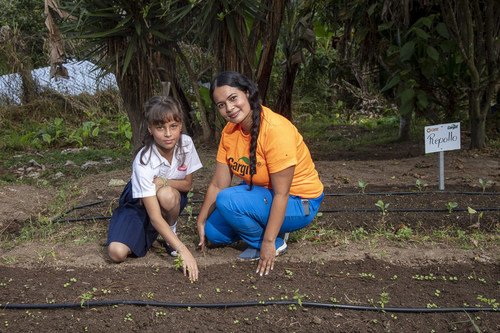Monday, 2 February 2026

With Cargill’s support, CARE has helped millions of people around the world grow more food, expand their incomes and build their communities
Cargill and CARE have embarked on the next chapter with Cargill pledging $14 million over the next three years. The goal is to drive deeper impact and build resiliency for rural agricultural communities globally, especially as the world faces a growing hunger crisis.
CARE and Cargill are longstanding partners; for more than 60 years, the two organisations have collaborated to develop and implement 34 distinct programs that reached more than 4.6 million people across 13 countries, including Côte d’Ivoire, Ghana, Guatemala, Honduras, India, Nicaragua, and Indonesia.
“Cargill has been CARE’s longest standing corporate partnership- a collaboration spanning more than six decades,” said Michelle Nunn, President and CEO, CARE US. “With Cargill’s support, CARE has helped millions of people around the world grow more food, expand their incomes and build their communities. The next phase of our partnership will apply the lessons of experience and new innovations to increase our impact and create a more sustainable and food secure world.”
The renewed third phase of Promoting a Sustainable and Food Secure World program, PROSPER, will support 11 projects spanning ten countries including Benin, Costa Rica, Côte d’Ivoire, Ghana, Guatemala, Honduras, Indonesia, Peru, Philippines, and Vietnam. With more than 50 per cent of the world’s food been produced by women, PROSPER will focus on three main areas:
Enabling women’s access to inclusive markets to unlock greater production, expand profits on small-scale agriculture, and ensure food security.
Increasing women’s access to productive agricultural resources by improving access to market information, extension and inputs as well as the technology and financial services they need to be successful.
Strengthening and expanding strategic partnerships to advocate for systemic change for women and the broader community.
With these refined focus areas, PROSPER will be more focused on women and have a greater emphasis on scaling its work through advocacy and partnership.
“Building resilient agricultural supply chains is at the core of our work at Cargill, and we know women play a critical part in driving the long-term change needed to strengthen the food system,” said Pilar Cruz, Chief Sustainability Officer at Cargill. “We are excited to expand our work with CARE and continue improving livelihoods of people in agricultural communities around the world.”
PROSPER is built on decades of evidence and learning, while rooted in community engagement and systems strengthening approaches that foster long-term sustainability. CARE and Cargill have successfully delivered signature programs since 2008 in countries including Côte d’Ivoire, Honduras, Guatemala, and Ghana. With PROSPER, both organisations aim to incorporate innovative approaches such as Farmer Field and Business Schools, Community Based Adaption, Village and Savings Loans Associations (VSLAs), and Engaging Men and Boys to create deeper impact and empower communities at large.
The goal is to reach nearly 1.6 million people directly and indirectly. However, the reach will go far beyond the program’s efforts. With increased investment in global, national, and local advocacy as well as scaling up approaches though partners, innovation, and use of digital technologies; both organisations believe they will be able to multiply this impact further.
Through collaboration and ensuring women have a leadership role in determining economic opportunities that best fit their communities, this partnership can deliver transformative impact. With Cargill’s position as a connector of the food system and their unique expertise and technical support paired with CARE’s on the ground experience and network, PROSPER will build sustainable and resilient supply chains and communities.